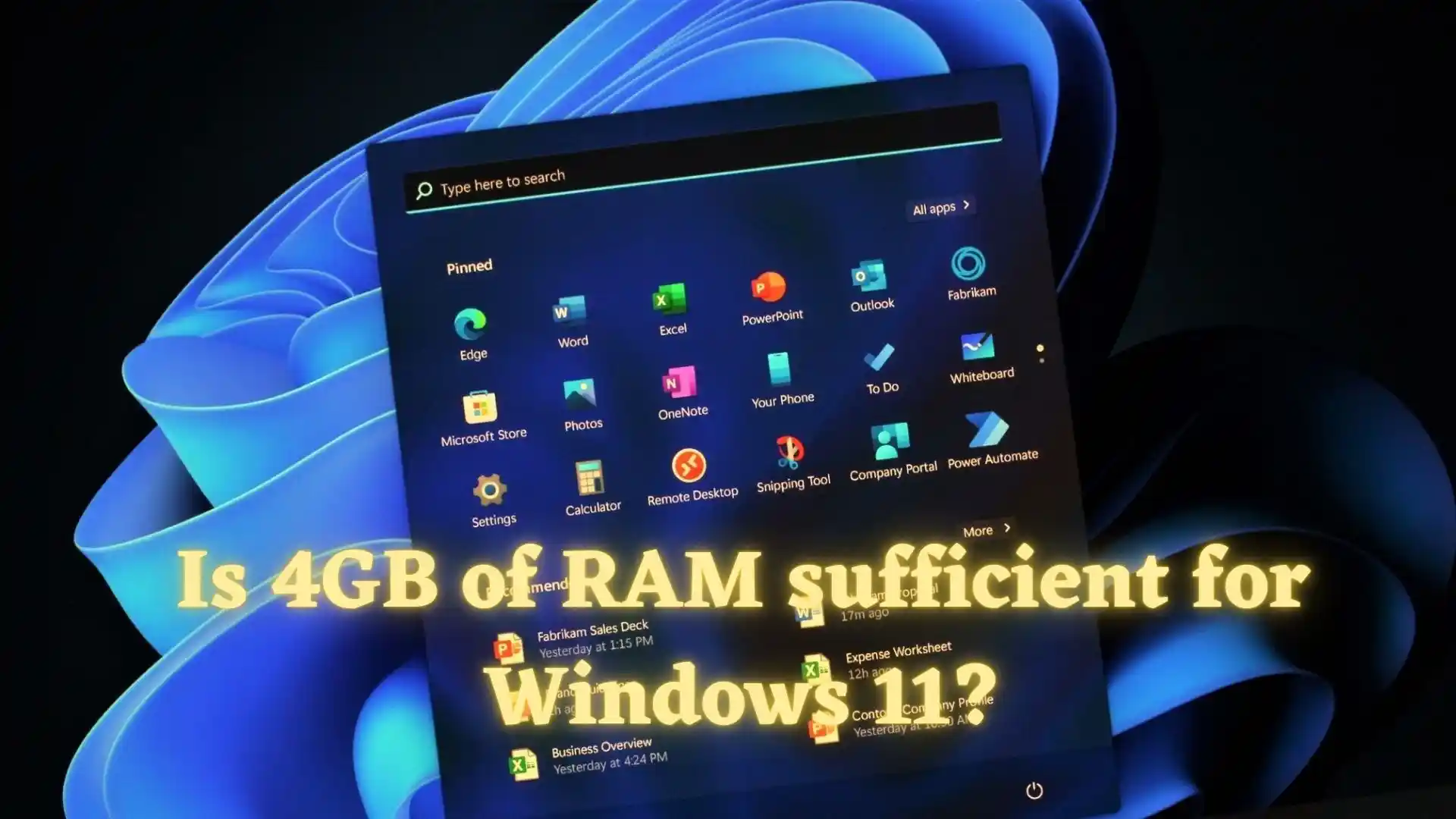How to Fix Discord Error: 'Installation Has Failed'

It’s been more than a year since Microsoft released Windows 11. The release came with a big jump in the minimum system requirements. But are the minimum system specifications really enough? Is 4GB RAM sufficient? Will you have a good time working on it? Let’s take a look at how it all works out.
With the launch of Windows 11, we saw a big jump in the system requirements. We have listed the minimum system requirements below:
These are the major specs. Comparing the past, the minimum amount of RAM required to run Windows 10 was 2GB. Similarly, for Windows 8 it was 2GB as well. (Here, we’re discussing x64 systems because Windows 11 is an x64-only system). While the jump in minimum system requirements is significant, the specs are still low for the modern-day computer where 8GB is the norm.
Let us start by understanding what RAM does. RAM is the primary memory of the system. It stores data written by the apps while they are running. They are also volatile. Meaning, that as soon as the power is turned off, the data stored in the RAM is gone. As soon as the power is turned on, the RAM springs into action. The operating system uses a huge chunk of this RAM. Especially if you’re using an OS like Windows.
The computer will start up without any problems. However, the problems will start when you try to open up other applications that use RAM. So if you use the bare minimum recommended by the operating system, the RAM will already be jam-packed. Now, opening another application on top of that can be acceptable. But you can kiss goodbye to your chances of multitasking. So is the case for Windows 11. If you use 4GB of RAM in the system, Windows will end up using more than 3GB of it. You will be left with less than a GigaByte of RAM which is far from optimal.
According to Microsoft, Windows 11 does a lot of memory management to best favor the app that is running in the foreground. Also, in some Microsoft Forums, people claimed that Windows 11 comes with a “performance boost”. But, as far as we can tell, no amount of performance boosting can solve the problem of insufficient hardware.
You might be asking yourself, does Windows 11 consume more RAM than Windows 10? So far, the answer is yes. Yes, Windows 11 consumes more RAM than Windows 10. However, we must keep in mind that Windows 11 is still in its early years while Windows 10 has had years of optimization and fine-tuning. So, it can’t be called yet. But the general consensus so far remains that Windows 11 takes up more RAM than its predecessor.
If all you want to do is take a look at Windows 11 and not multitask. Yes, 4GB of RAM is enough. But we all know that most of us use laptops for multitasking primarily. So, if you’re a multitasker and like to have multiple tabs open in your browser, an 8GB RAM kit would be a worthy investment before upgrading to Windows 11. And if you are a heavy multitasker like me and have a lot more than just a few browser tabs, you might want to look at 16GB of RAM.
RAM is not the only factor; loading Windows 11 can be slow even with 8 GB of it if the graphics processing unit (GPU) and the hard disk have a low rotational speed. Therefore, in order to achieve the best possible performance, I insist on having a high-end processor with a clock speed of at least 2 GHz and an SSD.
Actually, whether you have 16GB or 8GB of RAM, Windows will try to load everything in RAM rather than swapping it to the hard drive to provide the greatest overall performance.
So, even if you have 32GB, Windows 11, as well as other software and browsers, will load everything in RAM, potentially resulting in excessive RAM utilization. Keep in mind that loading data from an HDD or SSD takes longer than loading data from RAM. As a result, in order to improve performance, Windows will load many things into RAM.
I went scouring the web for answers when I thought about this topic. And without much digging, I found some anecdotal evidence that 4GB is not the best option for Windows 11. I’ve listed some below with appropriate links.
While we can all agree that it’s not a good idea to use Windows 11 in a 4GB system, there are ways to make it useable. Here, we have listed small changes that can help make the experience relatively smoother.
We have discussed how to perform most of the above tasks here.
Here are some of the benefits :
From all this, we can conclude a simple fact. It takes more than 4GB of RAM to run Windows 11. In fact, you’re better off doubling that amount and using 8GB of RAM if you want to have a stable working environment. The chaos that ensues from running it on minimum spec configuration is not worth the stress it creates.
